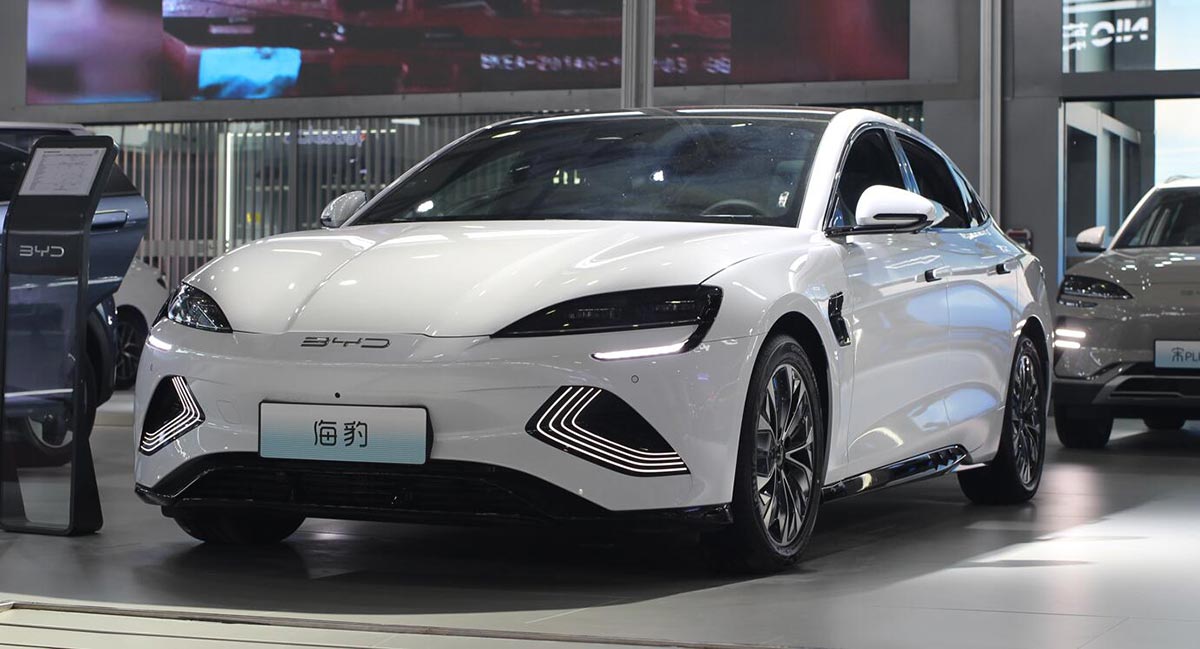BYD Accelerates ADAS Tech Innovation with Ex-Baidu Executive Hire, Report Reveals
BYD Bolsters Driver Assistance Technology with Ex-Baidu Expert, Eyes End-to-End Large Model Development

BYD, the global leader in new energy vehicles (NEVs), has strengthened its driver assistance technology capabilities by hiring Zhou Peng, a seasoned expert from Baidu’s smart driving technology division. According to local media, Zhou has joined BYD to spearhead the development of end-to-end large model planning and control algorithms, signaling the company’s commitment to advancing its autonomous driving capabilities.
Zhou, who previously held a leadership role in Baidu’s smart cockpit and smart driving fusion technology, brings extensive experience in managing complex projects. His expertise will be crucial in developing the technical framework and guiding the team towards achieving BYD’s goals in the rapidly evolving field of intelligent driving.
Local media outlet 36kr reports that end-to-end intelligent driving has gained traction as an industry-wide approach, and BYD is in the early stages of exploring this technology. To effectively train end-to-end algorithms, the company will need vast amounts of high-quality data, necessitating the establishment of a proficient technical framework and team. Having a proven leader like Zhou onboard is essential for the successful implementation of this strategy.
BYD is pursuing a dual-track approach to enhance its self-driving capabilities. Internally, the company is benchmarking its technology against Tesla, while externally, it is working to ensure its vendor solutions remain cutting-edge and safe. According to an insider, BYD’s advanced smart driving technology is currently featured in premium models such as the Yangwang U8 and Denza N7. However, the intense competitive landscape is driving manufacturers, including BYD, to integrate such technologies into more affordable vehicles.
Certain variants of the BYD Han and Song L are already equipped with high-level intelligent driving systems. In the future, models in the Ocean and Dynasty series, priced around RMB 200,000 ($27,500), will also come with a sophisticated driver assistance system based on a single Journey 5 chip from Horizon Robotics.
Despite its rapid ascent as the world’s largest NEV maker, BYD has been viewed as relatively cautious in the smart driving domain. This year, the company has intensified its efforts, unveiling the Xuanji Architecture in January as the core of its vehicle intelligence strategy. BYD Chairman Wang Chuanfu announced a RMB 100 billion investment in intelligence to lead the NEV industry forward, although the timeframe for these investments was not specified. The company boasts an intelligent driving team of over 4,000 personnel, with more than 3,000 specializing in software engineering.
In the near future, BYD’s high-level intelligent driving system will be standard on models priced above RMB 300,000, while those in the RMB 200,000 to RMB 300,000 range will offer optional packages. Tesla’s recent release of the FSD V12 has garnered positive feedback, influencing the industry consensus on the end-to-end large model technology Tesla employs. This trend is prompting more Chinese carmakers to explore similar routes.
Rival automakers are also making moves in the autonomous driving space. Nio has undergone a restructuring of its smart driving R&D department, focusing more on end-to-end technologies, as reported by LatePost on June 19. Meanwhile, Li Auto has established an end-to-end large model autonomous driving team of over 200 members, as noted by 36kr on July 17.
BYD’s recruitment of Zhou Peng and its strategic investments in intelligence demonstrate the company’s ambition to stay at the forefront of autonomous driving technology, aligning with the broader industry shift towards more sophisticated and accessible driver assistance systems.

 Auto in China
Auto in China